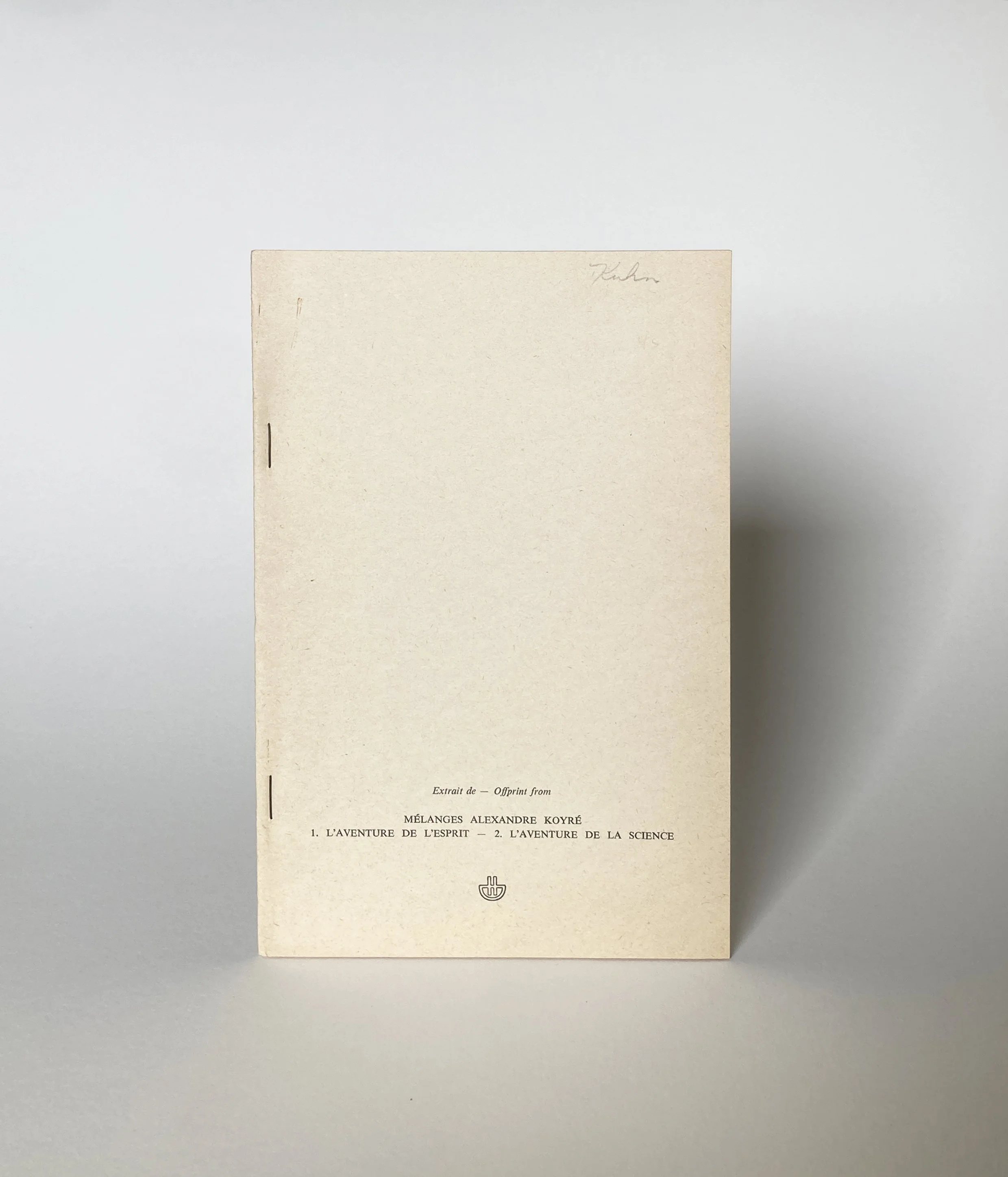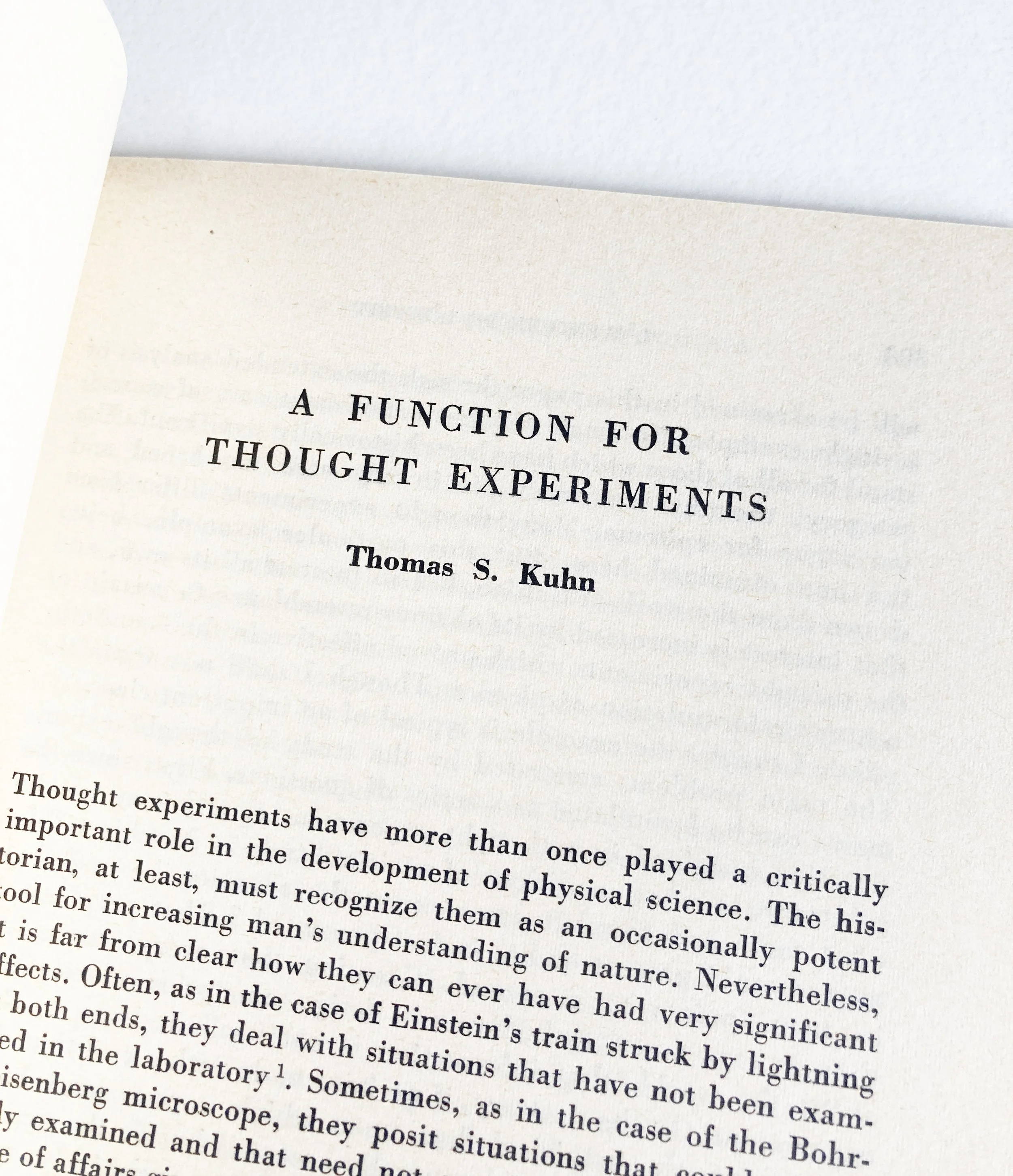THOMAS KUHN ON THOUGHT EXPERIMENTS [OFFPRINT]


THOMAS KUHN ON THOUGHT EXPERIMENTS [OFFPRINT]
KUHN, Thomas Samuel (1922–1996)
‘A Function for Thought Experiments’
[offprint from:] Mélanges Alexandre Koyré, ed. R. Taton and I. B. Cohen (Paris: Hermann, 1963)
The sole separate printing – exceptionally scarce – of Kuhn’s important paper on thought experiments. Composed at the same time as The Structure of Scientific Revolutions (1962), and crucial to the argument of the latter.
This essay, written with Kuhn’s characteristic clarity, analyses the role of thought experiments in periods of ‘paradigm shift’. Kuhn presents the following paradox:
Granting that every successful thought experiment embodies in its design some prior information about the world, that information is not itself at issue in the experiment. On the contrary, if we have to do with a real thought experiment, the empirical data upon which it rests must have been both well-known and generally accepted before the experiment was even conceived. How, then, relying exclusively upon familiar data, can a thought experiment lead to new knowledge or to new understanding of nature?
Kuhn’s radical proposal is that thought experiments can in fact alter our understanding of reality – in fact, as he writes in Structure,
the analytical thought experimentation that bulks so large in the writings of Galileo, Einstein, Bohr, and others is perfectly calculated to expose the old paradigm to existing knowledge in ways that isolate the root of crisis with a clarity unattainable in the laboratory.
This is because Kuhn has already shown that experimental data are ‘theory laden’ – i.e. that our conceptual apparatus itself shapes the way we perceive the world. So the paradox of thought experiments vanishes: a well designed thought experiment is exactly what is needed to alter or interrogate our concepts such that a ‘revolution’ in thought can occur. As Kuhn put it in Structures:
With the deployment, singly or together, of these extraordinary procedures, one other thing may occur. By concentrating scientific attention upon a narrow area of trouble and by preparing the scientific mind to recognize experimental anomalies for what they are, crisis often proliferates new discoveries.
Kuhn’s arguments – here, in Structures, and in The Copernican Revolution – resulted in their very own ‘paradigm shift’. Building on the work of Ludwig Fleck, Hélène Metzger and others, Kuhn showed that different phases in the history of science were not simply stages on the route to modern objectivity, rather they were internally coherent ‘paradigms’ constructed and maintained through networks of teaching and publishing, and the interpenetration of theory and experiment. Phases of ‘normal science’ were punctuated by periods of crisis, in which new experimental results or observations proved increasingly incommensurate with the existing framework. The implications of these ideas have been profound, with Kuhn being co-opted by relativists, cited as a founding father of the integrated field of ‘history and philosophy of science’, and, conversely, as the first theorist of ‘disruption’ – the idea that to innovate you have to ‘move fast and break things’.
We have been unable to locate other copies of this offprint, which was likely produced in very small numbers for Kuhn’s own circulation. It is in fine condition, with ‘Kuhn’ inscribed neatly in a previous owner’s hand to the upper right of the front cover.

